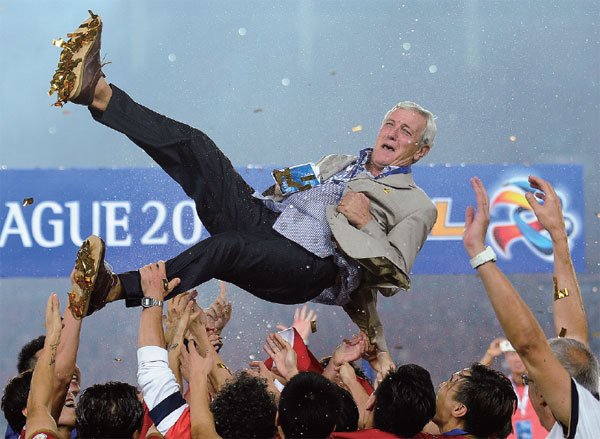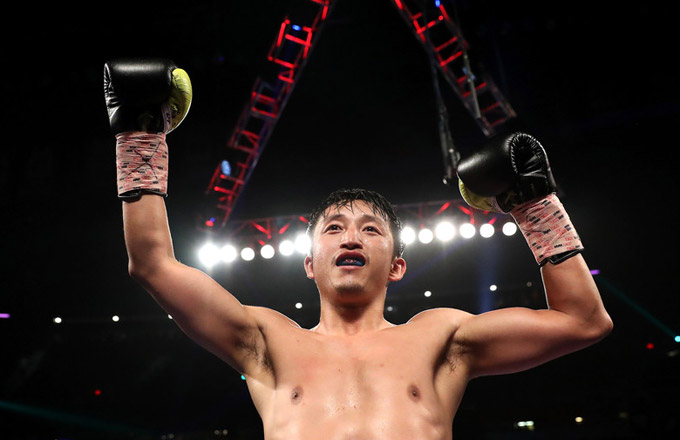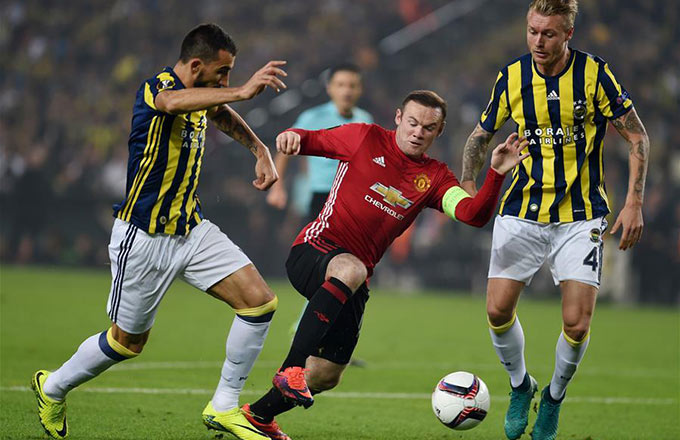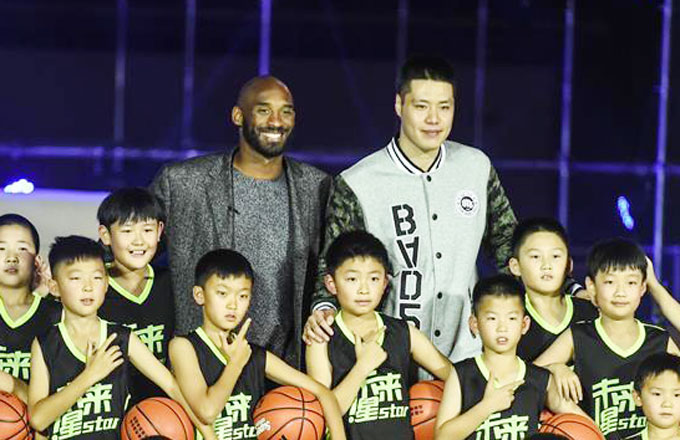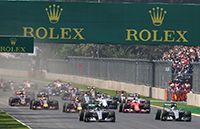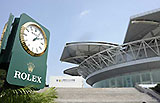Targeting match manipulation
Criminal influence at grassroots level still hampers game's growth in Asia
For all the new investment and advancements driving unprecedented growth in Asian soccer, an old problem is still causing concern at the grassroots level.
Billions have been invested in Super Leagues in China and India, the 2022 World Cup will be in Qatar and the flow of players to Europe is on the rise, giving Asia some prominence in the global game. But regional soccer administrators are still grappling with match fixing.
The good news is that they're fighting it.
On Monday, the Asian Football Confederation suspended four players from the Laos national team on suspicion of match manipulation. All four were involved in Laos' opening game against Sri Lanka at the inaugural Solidarity Cup, for the continent's lower-ranked teams.
Steve Darby is a former head coach of Laos - he was in charge during its failed qualifying run for the 2018 World Cup - and said he was shocked and angered by the news. Two of the four accused were on his team.
"They trained well and always gave 100 percent in matches. I trusted them," Darby said on Wednesday.
"One of the others I dropped from the squad, but that was because of his form and nothing else."
Darby said while he was in Laos, the fourth player - a goalkeeper - was not playing regularly at the top club level.
"He has made a rapid rise from about eighth choice to becoming the national team keeper," Darby noted. "You have to ask how that occurred."
Darby has also seen it from a rival team's perspective.
In 2014, nine players of Vietnamese club Ninh Binh were found guilty of match fixing in an AFC Cup match with Malaysian club Kelantan, which Darby was coaching at the time.
"It is hard to accept when it is you that is being cheated," Darby said.
"Like in all southeast Asian nations, there are rumors - some you think are feasible, some outlandish. You don't know who is fixing."
Southeast Asia has long been regarded as a hotbed of match fixing.
Singapore, home to high-profile alleged fixers such as Dan Tan, has made recent progress in tackling the problem, according to Chris Eaton, FIFA's former head of security and now an independent sports integrity adviser.
"Singapore has taken decisive action to contain locally-bred match fixers," Eaton said. "Singapore ultimately realized it has a duty of care to all nations for its homegrown criminality."
The problem is by no means contained to one region. In 2011, South Korea had a major scandal of its own with more than 50 players and coaches, past and present, charged with rigging matches.
The country's leading club, Jeonbuk Motors, which is preparing for the final of the 2016 Asian Champions League later this month, is under the shadow of its own scandal.
In September, the team was stripped of nine competition points by K-League authorities after a club scout was convicted of bribing referees in 2013.
The punishment cost the club, which denies any knowledge of wrongdoing, a third straight domestic title. It is also possible the AFC will bar Jeonbuk, champion of Asia in 2006 and finalist in 2011, from entering the 2017 tournament.
Chinese soccer had periodic outbreaks of corruption until the authorities got tough in 2010, jailing officials and referees.
"China has done a great deal over the past five years to address the problem with significant criminal prosecutions of players and referees," Eaton said.
He said if the Asian Football Confederation adopts a harsher and more proactive approaching to fighting match fixing, "that will not only be good for regional football, but global football also."
In a statement released to Associated Press, the AFC reiterated its "zero tolerance" policy on match manipulation and said it was determined to stamp it out.
But Darby said while catching the players is necessary, more needs to be done to bring the orchestrators of corruption to justice.
"They have caught the foot soldiers but now they need to catch the generals," he said.
"If the players are guilty, there is somebody above them pulling the string. They cannot do this on their own."
He pointed to illegal gambling as a major problem - and Eaton agrees.
"Match fixing is absolutely and clearly holding Asian football back," Eaton said.
"The only way to drive organized crime out of sport is to deny it the money that it makes."
He said reforming sports betting by legalizing it would help ensure it was regulated properly at "national, regional and global levels."
Shenhua says adios to Spanish coach
Shanghai Shenhua on Wednesday parted company with Spanish coach Gregorio Manzano, who guided the club to a fourth-place finish in this year's Chinese Super League.
The CSL has a reputation for a quick turnaround of managers. Manzano is the second coach in a week to take his leave of a Shanghai team, hot on the heels of former England coach Sven-Goran Eriksson's departure from Shanghai SIPG on Nov 4.
The decision was made "due to considerations about the team's future strategic development and in order to achieve its objectives for the new season, while also taking into account the differences in soccer principles between East and West", the club said on a verified social media account.
It expressed its "heartfelt thanks" for how the coach had raised the team's technical and strategic skill levels, stating: "We wish Mr Manzano and his coaching staff every success in their future work and life."
Manzano, 60, headed Malaga, Atletico Madrid and Mallorca in his native Spain before landing his first job in China at Beijing Guoan in 2014.
He and Eriksson are not the only foreign hires on the mainland to be shown the door after a period of moderate success.
In 2012, Guangzhou Evergrande replaced Lee Jang-soo with Marcello Lippi halfway through the season after the Korean coach had taken it to promotion and the CSL title in consecutive years.
Evergrande also moved swiftly to replace Lippi's eventual successor, Fabio Cannavaro, with Luiz Felipe Scolari after the Italian guided it to the top of the standings last year.
Agence France-Presse
|
Players from China's Guangzhou Evergrande give coach Marcello Lippi a victory toss after defeating South Korea's FC Seoul in the 2013 Asian Champions League final in Guangzhou. Evergrande and Lippi have always been pillars of outstanding fair play. The Chinese Football Association announced last month it had coaxed Lippi out of retirement to coach the national team, but long-suffering fans have respond-ed with a wait-and-see attitude. Given China's record of failure under multiple foreign coaches, the lack of success is often blamed on the absence of a strong youth program, long-term planning and a failure to find the raw material to forge a winning team. AP File |
(China Daily 11/11/2016 page22)




